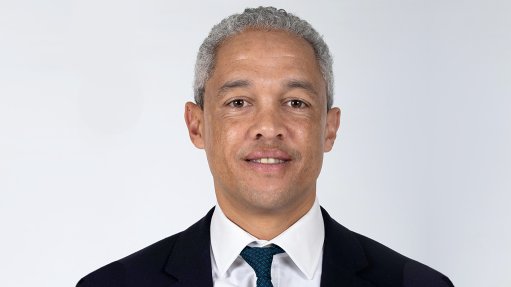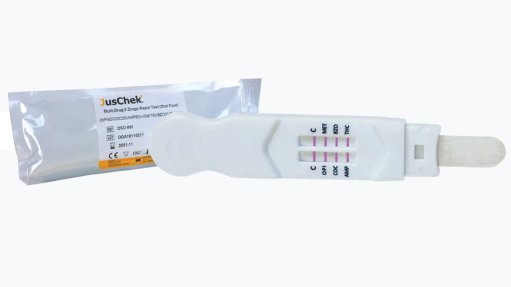Fairtrade South Africa
When last, while shopping, did you pause to scrutinise the packaging of the product you had selected? Are you one of those shoppers who turn the product around to contemplate the nutritional information? Does the information pertaining to fats or carbohydrates mean anything to you? Or does the fibre, protein and salt content mean anything to you?
It is indeed unfortunate if the nutritional information is all that resonates with you. It is rather the green-blue-black logo on the packaging, resembling a yin-and-yang, with what looks like a tear in its middle, that should take precedence; it is the Fairtrade certification mark.
If you are not au fait with Fairtrade, you might well be wondering what it is. The Fairtrade Foundation states that Fairtrade is about better prices, decent working conditions, local sustainability and fair terms of trade for farmers and workers in the developing world. It requires companies to pay sustainable prices, which must never fall below the market price. Fairtrade tackles the injustices of conventional trade, which traditionally discriminates against the most vulnerable. It enables them to improve their situation and have more control over their lives.
I wrote this piece on the last day of Fairtrade Fortnight 2021, which started on February 22, highlighting the growing challenges that climate change brings to farmers and workers in the communities that Fairtrade works with. Farmers and workers in countries with whom Fairtrade works have done the least to contribute to climate change but are disproportionately affected by this phenomenon. These farmers and workers told Fairtrade the three things that are of the greatest concern to them: climate change is one of their biggest challenges right now; low prices for their crops mean that they are struggling to fight back; and only with more money will they feel equipped to meet their everyday needs and deal with the challenges they face from climate change.
As I read about Fairtrade Fortnight, I contemplated the South African operation. Is there even a South African operation? Well, there is a website for Fairtrade Label South Africa (FLSA) – https://www.fairtrade.org.za.
The website states: “FLSA was established in 2009 to serve the interests and rights of farmers, workers and producers in South Africa. Over the past eight years, FLSA has played an important role in the implementation and promotion of the Fairtrade Standards and the Fairtrade Mark within the Southern African markets. Due to a number of strategic considerations, FLSA will no longer function as an autonomous National Fairtrade Organisation, effective as of July 31, 2017. It has consequently been decided to support Fairtrade licensees from the Fairtrade International Central Office. We are currently in the process of working with our licensees to support them in taking up licensing arrangements with Fairtrade International to ensure the Fairtrade Mark and all that it represents for farmers and workers remain strong and present in South Africa. These brands will continue to benefit from the support of the global Fairtrade network and from marketing efforts around the world. We thank you, our supporters, for the way you have embraced Fairtrade and look forward to your continued support in buying products that help change the lives of farmers and workers in South Africa and in developing countries further abroad.”
The Fairtrade International Central Office is based in Bonn, Germany. So, the FLSA operation is run from Germany, which is unfortunate, considering South Africa’s stated commitment to the African continent.
I trust this will not diminish South African consumers’ resolve to commit to their power to change the world every day, through simple shopping choices that give farmers and their workers a better deal. As a consequence, it means they can make their own decisions, control their future and lead the dignified life everyone deserves.
Article Enquiry
Email Article
Save Article
Feedback
To advertise email advertising@creamermedia.co.za or click here
Announcements
What's On
Subscribe to improve your user experience...
Option 1 (equivalent of R125 a month):
Receive a weekly copy of Creamer Media's Engineering News & Mining Weekly magazine
(print copy for those in South Africa and e-magazine for those outside of South Africa)
Receive daily email newsletters
Access to full search results
Access archive of magazine back copies
Access to Projects in Progress
Access to ONE Research Report of your choice in PDF format
Option 2 (equivalent of R375 a month):
All benefits from Option 1
PLUS
Access to Creamer Media's Research Channel Africa for ALL Research Reports, in PDF format, on various industrial and mining sectors
including Electricity; Water; Energy Transition; Hydrogen; Roads, Rail and Ports; Coal; Gold; Platinum; Battery Metals; etc.
Already a subscriber?
Forgotten your password?
Receive weekly copy of Creamer Media's Engineering News & Mining Weekly magazine (print copy for those in South Africa and e-magazine for those outside of South Africa)
➕
Recieve daily email newsletters
➕
Access to full search results
➕
Access archive of magazine back copies
➕
Access to Projects in Progress
➕
Access to ONE Research Report of your choice in PDF format
RESEARCH CHANNEL AFRICA
R4500 (equivalent of R375 a month)
SUBSCRIBEAll benefits from Option 1
➕
Access to Creamer Media's Research Channel Africa for ALL Research Reports on various industrial and mining sectors, in PDF format, including on:
Electricity
➕
Water
➕
Energy Transition
➕
Hydrogen
➕
Roads, Rail and Ports
➕
Coal
➕
Gold
➕
Platinum
➕
Battery Metals
➕
etc.
Receive all benefits from Option 1 or Option 2 delivered to numerous people at your company
➕
Multiple User names and Passwords for simultaneous log-ins
➕
Intranet integration access to all in your organisation

















